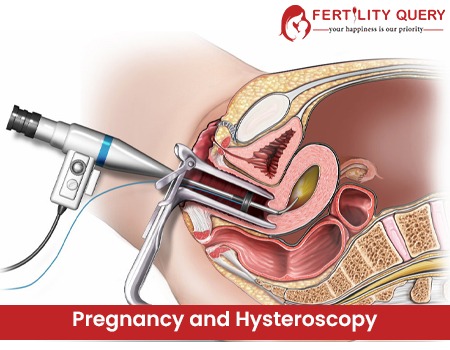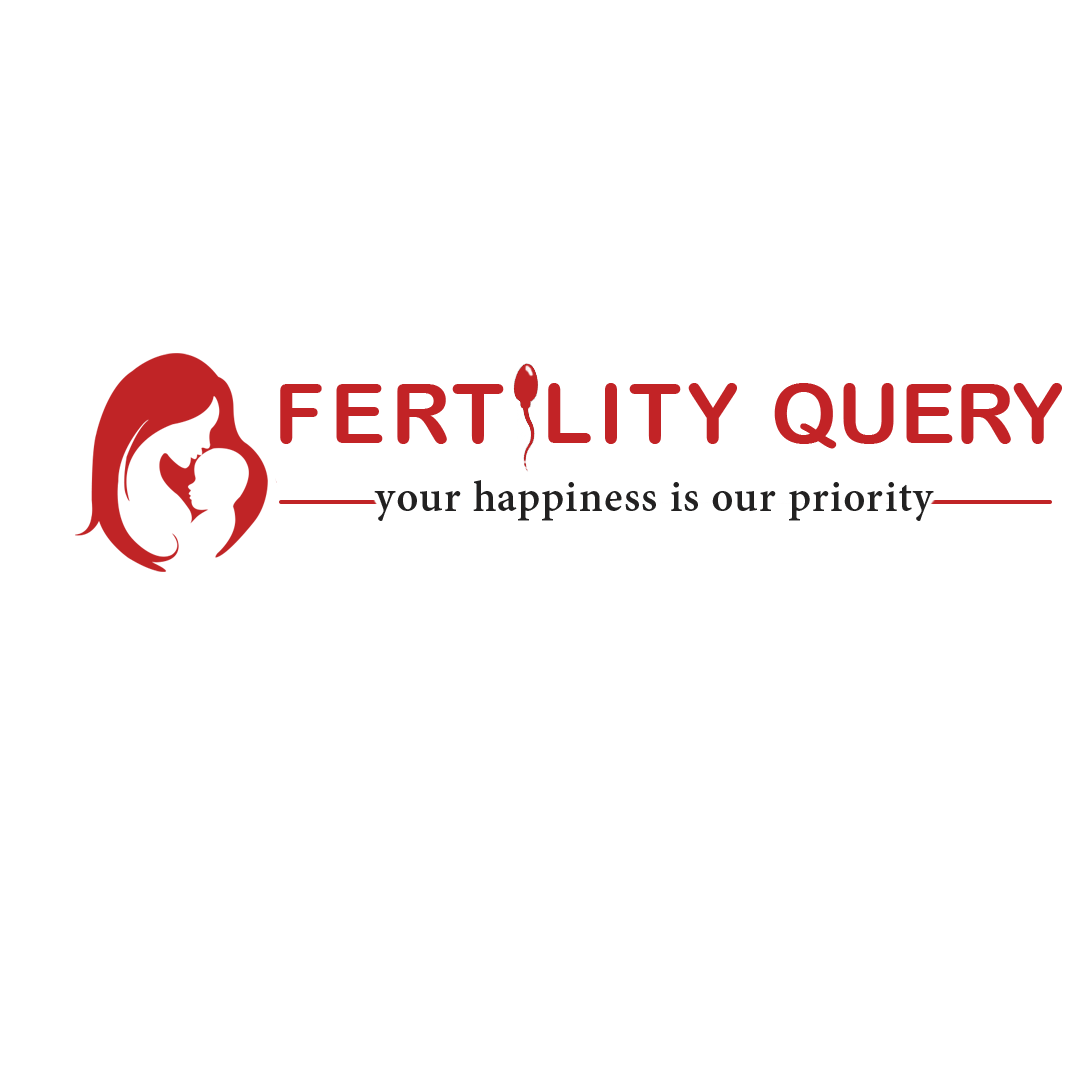
Pregnancy and Hysteroscopy
Pregnancy is a profound and life-changing experience for many couples. However, it’s not always as straightforward as we hope, and infertility can be a challenging issue to face. In recent years, medical advancements have offered various solutions to address infertility, and one of these important tools is hysteroscopy. In this article, we will explore the concept of pregnancy and delve into the role of hysteroscopy in enhancing fertility, with a focus on services offered by Fertility Query Centre in Delhi.
Pregnancy: A Biological Marvel:-
The Miracle of Conception:
Pregnancy is a miraculous journey that begins with the fusion of an egg and a sperm, resulting in the formation of a zygote. This zygote then undergoes a series of complex transformations, ultimately leading to the formation of a fetus. The successful development of a fetus and a healthy pregnancy requires the coordination of various biological processes and a conducive environment within the female reproductive system.
Understanding Female Reproductive Anatomy:
The female reproductive system is a complex network of organs that includes the ovaries, fallopian tubes, uterus, and vagina. The uterus, in particular, plays a central role in pregnancy. It is in the uterus that the fertilized egg implants, develops, and eventually leads to the birth of a baby.
Challenges in Achieving Pregnancy:-
Infertility: A Growing Concern:
Infertility is a condition characterized by the inability to conceive after a year of trying for couples under the age of 35, and six months for those over 35. It affects a significant portion of the population and can result from various factors. Some common causes of infertility include:
1.Ovulatory Disorders: When a woman does not ovulate regularly or does not release healthy eggs, conceiving becomes challenging.
2.Structural Issues: Problems with the uterus or fallopian tubes can hinder the fertilized egg’s journey to the uterus.
3.Endometriosis: This condition can lead to the growth of tissue outside the uterus, causing blockages and pain.
4.Male Factors: Male infertility is also a common issue, often related to low sperm count or poor sperm quality.
5.Unexplained Infertility: In some cases, the exact cause of infertility remains unknown.
The Role of Hysteroscopy in Infertility:-
Hysteroscopy is a minimally invasive procedure that plays a crucial role in diagnosing and treating various uterine conditions that can lead to infertility. It involves the insertion of a thin, lighted tube (hysteroscope) through the vagina and cervix to examine the inside of the uterus. Here are some ways hysteroscopy can help with infertility:
1.Diagnosing Uterine Abnormalities: Hysteroscopy can identify structural abnormalities in the uterus, such as polyps, fibroids, or adhesions, which may obstruct implantation or affect the development of a fertilized egg.
2.Removing Uterine Abnormalities: In some cases, hysteroscopy allows for the removal of these uterine growths or adhesions, improving the chances of a successful pregnancy.
3.Evaluating Fertility Treatment Outcomes: Hysteroscopy can be used to assess the success of fertility treatments like in vitro fertilization (IVF) by confirming the health of the uterine lining for embryo implantation.
The Role of Fertility Query Centre in Delhi:-
Delhi’s Hub for Fertility Solutions:
Fertility Query Centre in Delhi is a renowned establishment that specializes in providing a wide range of fertility-related services, including hysteroscopy. The center is staffed with highly skilled and experienced fertility specialists, gynecologists, and embryologists who work together to address various aspects of infertility and pregnancy.
Comprehensive Diagnosis and Consultation:
Fertility Query Centre offers comprehensive diagnostic services to identify the root causes of infertility. This includes an in-depth evaluation of both male and female partners. After a thorough examination, the fertility specialists at the center provide personalized consultations and treatment plans tailored to the individual needs of each patient.
Advanced Hysteroscopy Services:
The center is equipped with state-of-the-art technology to perform hysteroscopy with precision and accuracy. The skilled medical team at Fertility Query Centre can conduct diagnostic hysteroscopy to assess the condition of the uterine cavity and therapeutic hysteroscopy to treat uterine abnormalities when necessary.
Patient-Centric Approach:
Fertility Query Centre prioritizes patient well-being and offers a patient-centric approach to fertility treatment. The emotional and psychological aspects of fertility are recognized, and support is provided throughout the journey. This includes counseling, support groups, and guidance on lifestyle changes that can enhance fertility.
The Hysteroscopy Procedure:-
Preparation and Anesthesia:
Hysteroscopy is a minimally invasive procedure, typically performed on an outpatient basis. Before the procedure, you will receive instructions on fasting, medications, and other preparations. Hysteroscopy can be done with local anesthesia or general anesthesia, depending on the complexity of the procedure and your preference.
Insertion of the Hysteroscope:
The hysteroscope is a slender instrument with a camera attached to its end, which allows the medical team to visualize the inside of the uterus. The hysteroscope is inserted through the vagina and cervix into the uterine cavity. Carbon dioxide gas or a saline solution is often used to gently expand the uterine walls for better visualization.
Exploration and Treatment:
The hysteroscope allows the fertility specialist to explore the uterine cavity and identify any abnormalities. In the case of diagnostic hysteroscopy, the procedure ends after the examination. However, in therapeutic hysteroscopy, if an issue is detected, the specialist can take immediate corrective actions. This may involve removing polyps, fibroids, adhesions, or other obstructions.
Recovery and Follow-Up:
One of the advantages of hysteroscopy is its relatively quick recovery time. Most patients can go home on the same day of the procedure. There may be some mild discomfort and minimal bleeding, which usually subsides within a few days. The fertility specialist will provide guidance on post-procedure care and any necessary follow-up appointments.
Conditions Treated with Hysteroscopy:-
Hysteroscopy can effectively treat various uterine conditions that may contribute to infertility. Some of the common issues that can be addressed with hysteroscopy include:
1.Uterine Polyps: These growths in the uterine lining can interfere with embryo implantation and may lead to recurrent miscarriages.
2.Uterine Fibroids: Large fibroids can block the fallopian tubes or interfere with the implantation process.
3.Uterine Adhesions (Asherman’s Syndrome): Scar tissue or adhesions within the uterine cavity can prevent the implantation of a fertilized egg.
4.Septate Uterus: In some cases, the uterus may have a septum, a band of tissue that divides it into two sections. Hysteroscopy can correct this condition.
5.Uterine Anomalies: Structural anomalies of the uterus can be identified and, in some cases, corrected through hysteroscopy.
Benefits of Hysteroscopy in Fertility Treatment:-
Accuracy and Precision:
Hysteroscopy offers high-definition visualization of the uterine cavity, allowing fertility specialists to accurately diagnose and treat various uterine issues. Its precision makes it an invaluable tool in fertility treatment.
Minimally Invasive:
Compared to traditional open surgery, hysteroscopy is minimally invasive. It requires smaller incisions or none at all, which translates to less pain, a shorter recovery period, and a reduced risk of complications.
Short Recovery Time:
Patients who undergo hysteroscopy typically experience minimal discomfort and can return to their normal activities within a few days. This quick recovery is a significant advantage for those seeking to conceive.
Increased Pregnancy Success Rates:
By diagnosing and treating uterine abnormalities, hysteroscopy can significantly improve the chances of a successful pregnancy, whether through natural conception or assisted reproductive technologies like IVF.
Personalized Treatment Plans:
Fertility specialists at centers like Fertility Query Centre can tailor treatment plans based on the findings of hysteroscopy, addressing the specific needs of each patient.
Combining Hysteroscopy with Assisted Reproductive Technologies:-
For couples facing complex fertility issues, hysteroscopy can be integrated with assisted reproductive technologies to enhance the chances of pregnancy. Here’s how hysteroscopy complements common fertility treatments:
1.In Vitro Fertilization (IVF): Hysteroscopy can be performed before an IVF cycle to ensure the uterine environment is optimal for embryo implantation. It can also be used during an IVF cycle to assess the uterine lining and confirm the placement of embryos.
2.Intrauterine Insemination (IUI): Hysteroscopy can help identify and treat uterine abnormalities that may affect the success of IUI.
3.Frozen Embryo Transfer (FET): For patients undergoing FET, hysteroscopy can be used to prepare the uterine lining for embryo transfer.
Conclusion:-
Pregnancy is a deeply desired experience for many couples, and when faced with infertility, it can be a challenging journey. Fortunately, modern medical advancements, such as hysteroscopy, offer hope and solutions. Fertility Query Centre in Delhi is a trusted institution that provides comprehensive fertility services, including advanced hysteroscopy, to help couples realize their dream of parenthood.
Hysteroscopy is a minimally invasive procedure that can diagnose and treat various uterine conditions contributing to infertility. It offers numerous advantages, including accuracy, minimal invasiveness, short recovery times, and increased pregnancy success rates. By combining hysteroscopy with assisted reproductive technologies, couples can further enhance their chances of conceiving.
If you’re struggling with infertility or wish to explore your fertility options, consider reaching out to Fertility Query Centre for personalized care and expert guidance. The journey to parenthood is unique for each individual or couple, and with the right support and medical expertise, your dreams of becoming a parent can become a reality.



